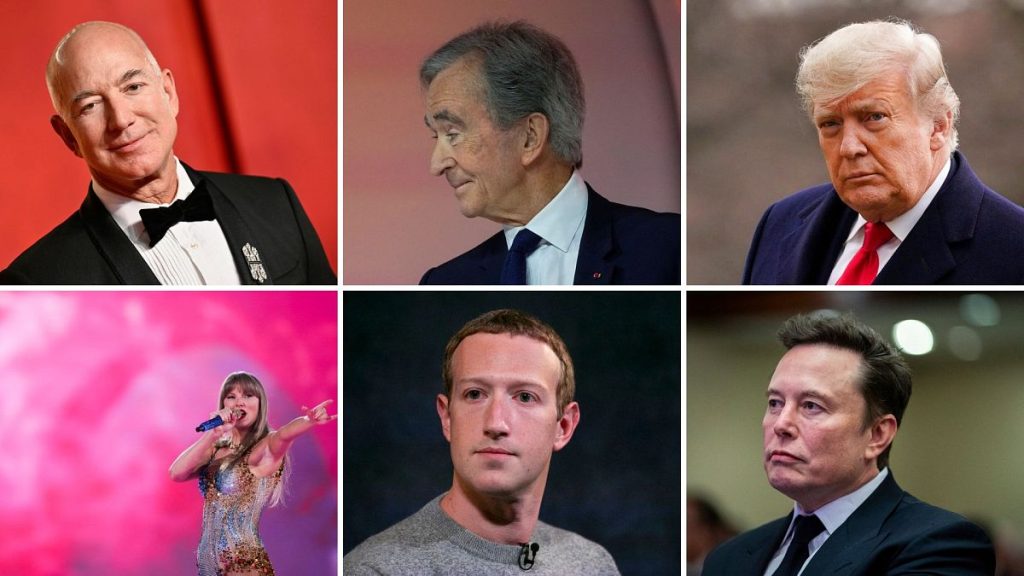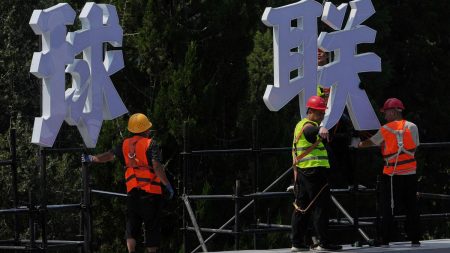The global landscape of wealth distribution experienced a dramatic shift in 2024, characterized by a staggering surge in billionaire wealth amidst persistent poverty. Oxfam International’s report, “Takers Not Makers,” reveals a $2 trillion increase in billionaire wealth, a threefold acceleration compared to the previous year. This translates to an average daily gain of $5.7 billion for the world’s wealthiest individuals, a stark contrast to the stagnant plight of millions living in poverty on less than $6.85 a day. The report highlights the growing chasm between the ultra-rich and the rest of the world, painting a picture of an economic system skewed towards wealth concentration at the top. The total wealth accumulated by billionaires in 2024 reached a staggering amount equivalent to the entire GDP of the Eurozone, approximately $15 trillion. This immense concentration of wealth in the hands of a select few raises concerns about economic inequality and its implications for global development.
The report further projects a troubling trend: the emergence of trillionaires within the next decade. While previous forecasts anticipated the arrival of just one trillionaire, Oxfam now predicts at least five. This alarming acceleration of wealth accumulation at the highest echelons raises questions about the efficacy of current economic policies and their ability to address the growing disparity between the rich and the poor. The increasing number of billionaires, now at 2,769, further underscores the concentration of wealth in a select group, raising concerns about the potential for undue influence on economic and political systems.
The timing of the report coincided with the World Economic Forum in Davos, Switzerland, an annual gathering of global political and financial elites. This juxtaposition highlighted the stark contrast between the discussions taking place within the forum and the realities experienced by those struggling with poverty and inequality. Adding to the complexity of the situation is the imminent presidency of Donald Trump, a billionaire himself, backed by another billionaire, Elon Musk. This confluence of wealth and political power underscores Oxfam’s concerns about the undue influence of the ultra-rich on policy decisions.
Oxfam International’s Executive Director, Amitabh Behar, characterized this concentration of wealth as a “capture of our global economy by a privileged few,” pointing to the growing power of billionaires to shape economic and social policies to their own advantage. Behar emphasized that the issue extends beyond individual billionaires to the systemic flaws that permit and even encourage such wealth accumulation. The rise of billionaires, and the projected emergence of trillionaires, underscores the urgent need to address the underlying mechanisms that perpetuate this imbalance.
Mirroring calls for increased taxation on the wealthy, such as President Biden’s advocacy for billionaires to “pay their fair share,” Oxfam advocates for government intervention to mitigate inequality and curb excessive wealth accumulation. The organization proposes concrete measures such as dismantling monopolies, capping CEO pay, and implementing regulations to ensure corporations pay living wages. These proposals are aimed at addressing the systemic factors driving wealth concentration and ensuring a more equitable distribution of resources.
Beyond the concentration of wealth at the top, the report also highlights the crippling debt burden faced by low- and middle-income countries. Oxfam points out that these nations allocate almost half their national budgets to debt repayments, often at the expense of critical investments in education and healthcare. This financial strain further exacerbates existing inequalities and hinders these countries’ ability to invest in human development. The stark disparity in life expectancy between Africa (64 years) and Europe (over 79 years) serves as a stark reminder of the real-world consequences of these economic disparities. Oxfam’s report serves as a call to action, urging a fundamental reassessment of current economic systems and advocating for policies that prioritize equitable distribution of wealth and resources for the benefit of all.














